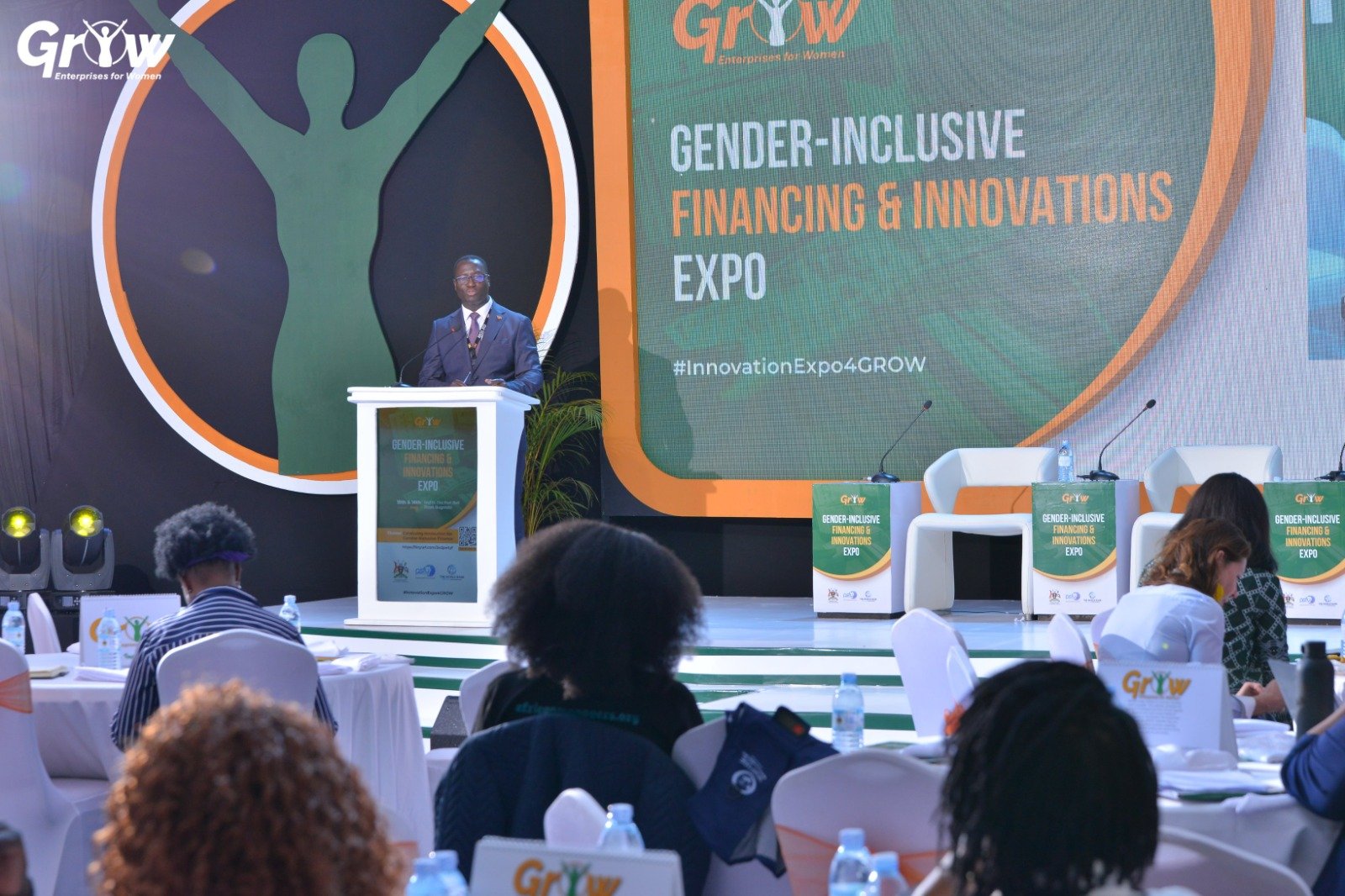Experts have called for urgent reforms in Uganda’s financial systems to promote gender-inclusive finance, following the conclusion of the 2025 Gender-Inclusive Financing Innovation Expo in Kampala.
Held under the theme “Catalyzing Innovation for Gender-Inclusive Finance,” the two-day event attracted participants from across the financial ecosystem including government agencies, private sector players, civil society, and women entrepreneurs united in the push to dismantle persistent barriers limiting women’s access to formal financial services.
The Expo, organized by the Ministry of Gender, Labour and Social Development (MGLSD) in partnership with the Private Sector Foundation Uganda (PSFU) and supported by the World Bank, forms part of the broader GROW Project (Generating Growth Opportunities and Productivity for Women Enterprises), which was launched in 2023.
Permanent Secretary for Gender, Labour and Social Development, Aggrey Kibenge, described the Expo as more than a platform for dialogue.
“We have unpacked the realities, interrogated the challenges, and spotlighted solutions,” he said. “The real work begins now as we return to our institutions armed with new insights and the resolve to do things differently.”
Participants showcased innovative financial tools including non-collateral lending models, Islamic financing, digital savings products, and alternative credit scoring designed to expand access for women entrepreneurs, particularly in underserved and rural areas.
Despite owning nearly 40% of Uganda’s businesses, women account for only 24.4% of formal credit, data presented at the Expo revealed. Many continue to rely on informal financial services, such as savings groups and mobile money, which experts say offer limited growth potential and security.
The GROW Financing Facility (GFF), launched under the project, is addressing this imbalance through partnerships with six commercial banks DFCU, Equity, Finance Trust, Centenary, Post Bank, and Stanbic. These institutions now offer affordable loans ranging from Shs 4 million to Shs 200 million at interest rates not exceeding 10.5%, with additional incentives for timely repayment.
PSFU Chief Executive Officer Sarah Kagingo hailed the Expo as a milestone in transforming Uganda’s financial architecture for women.
“Women-owned businesses are a cornerstone of Uganda’s economy,” she said. “This Expo marks a turning point by focusing on innovation, partnerships, and evidence-based solutions to bridge the financing gap.”
While acknowledging the contributions of government-backed programs such as the Uganda Women Entrepreneurship Programme (UWEP) and the Parish Development Model (PDM), Kagingo noted that more flexible, scalable, and unsecured financial products are urgently needed to meet rising demand.
Citing the 2024 Auditor General’s report, which showed only UGX 18.52 billion of the UGX 75.1 billion GROW budget had been utilized, she emphasized the need to enhance fund absorption—especially in rural and refugee-hosting communities.
“The private sector must embrace digital lending, simplify loan application processes, and design gender-sensitive financial products,” she added.
A key outcome of the Expo was the launch of the Women Entrepreneurship Financing Learning Lab (WEFL)—a hub aimed at supporting ongoing research, pilot projects, and policy reforms. WEFL will partner with microfinance institutions and fintech innovators to scale up access to collateral-free loans and tailored services for women.
As Uganda prepares its Fourth National Development Plan (NDP IV), stakeholders from both public and private sectors reiterated the strategic importance of inclusive finance.
Kibenge, also speaking on behalf of the Ministry of Finance, Planning, and Economic Development, pledged continued support for policies that fund inclusive financial systems not just projects.
“We must go beyond funding programs to funding systems that work for women,” he said. “Inclusive finance is not the exception—it is the new standard.”
With the close of the Gender-Inclusive Financing Innovation Expo, Uganda has reaffirmed its commitment to empowering women entrepreneurs through systemic change, innovation, and collaboration.

















